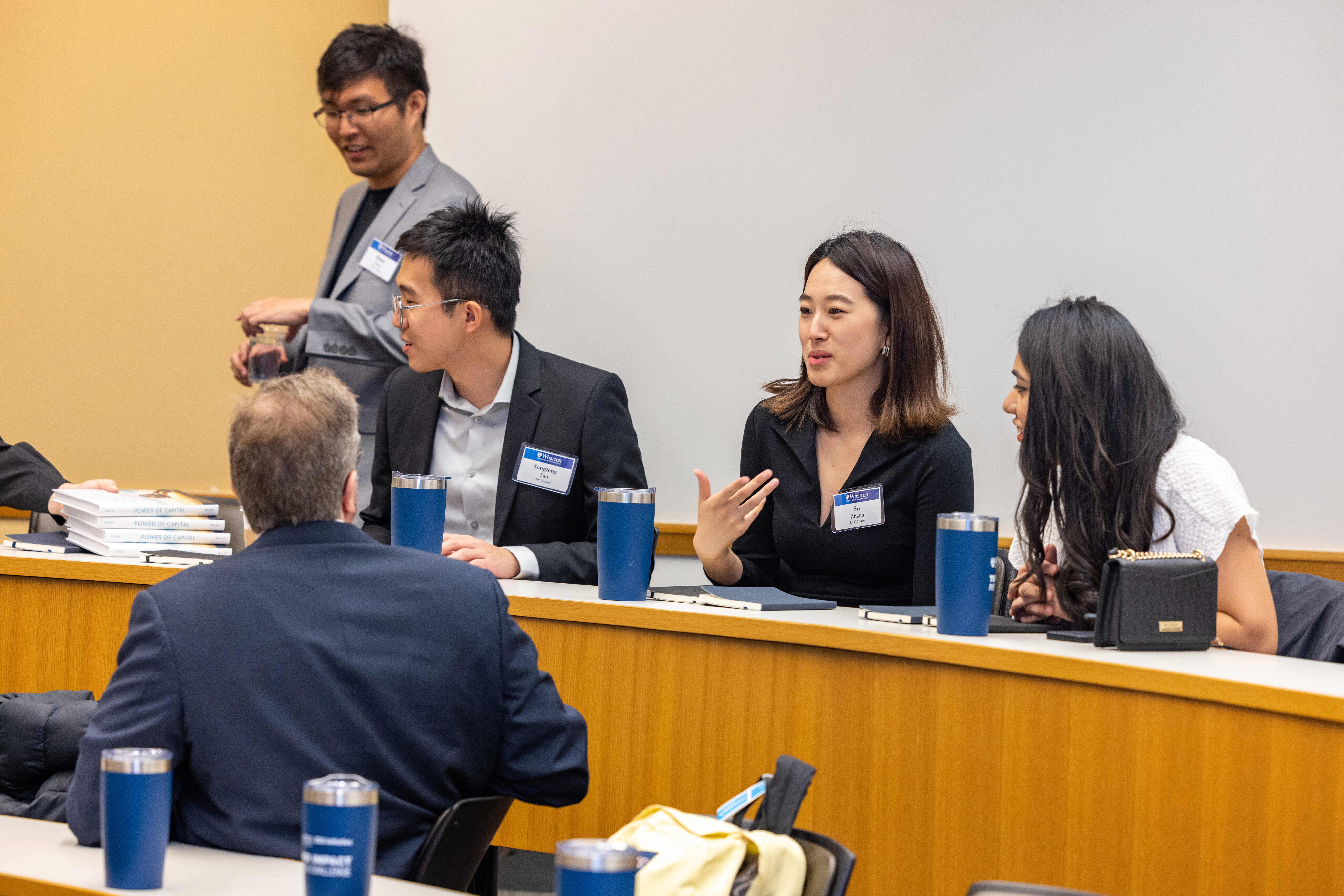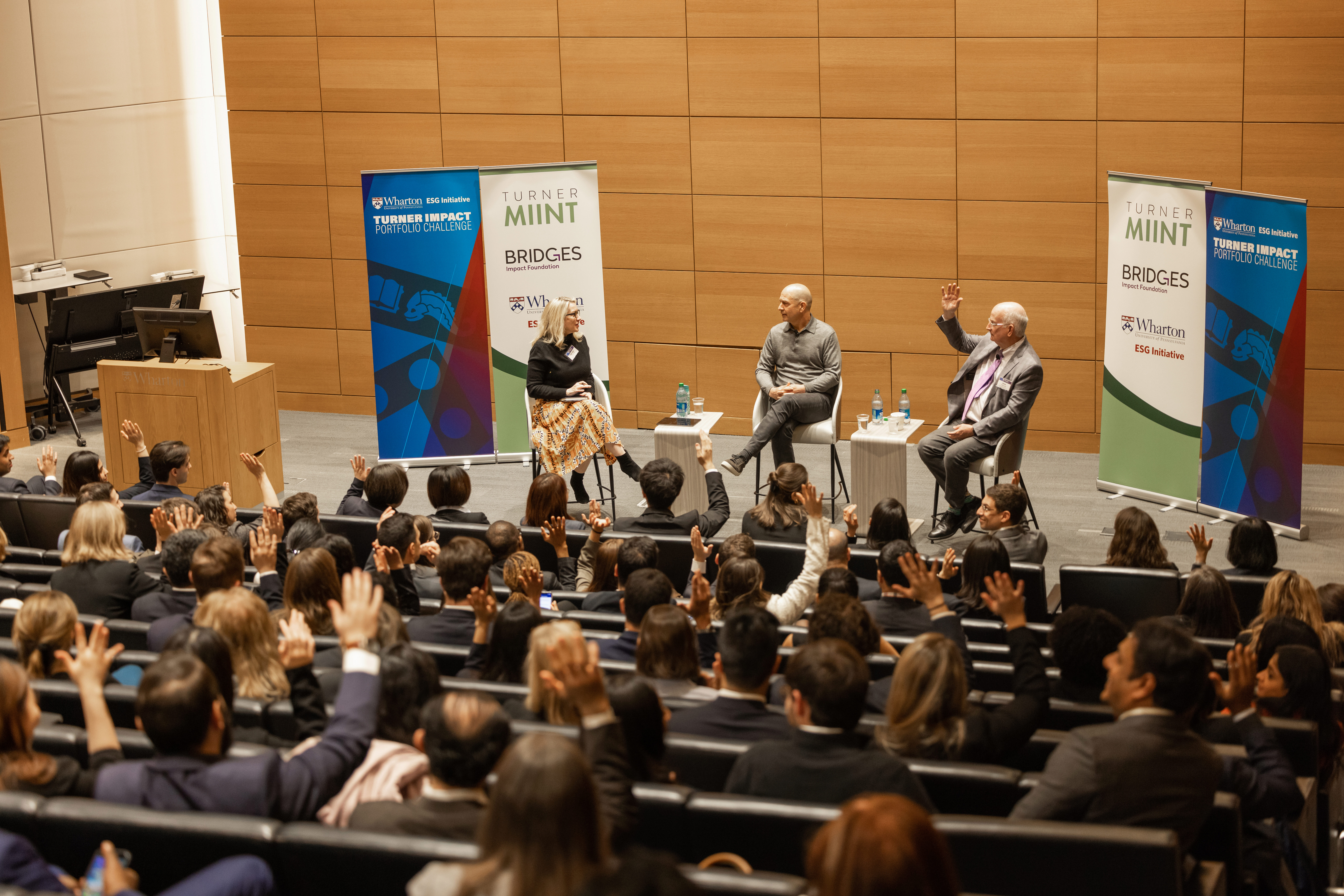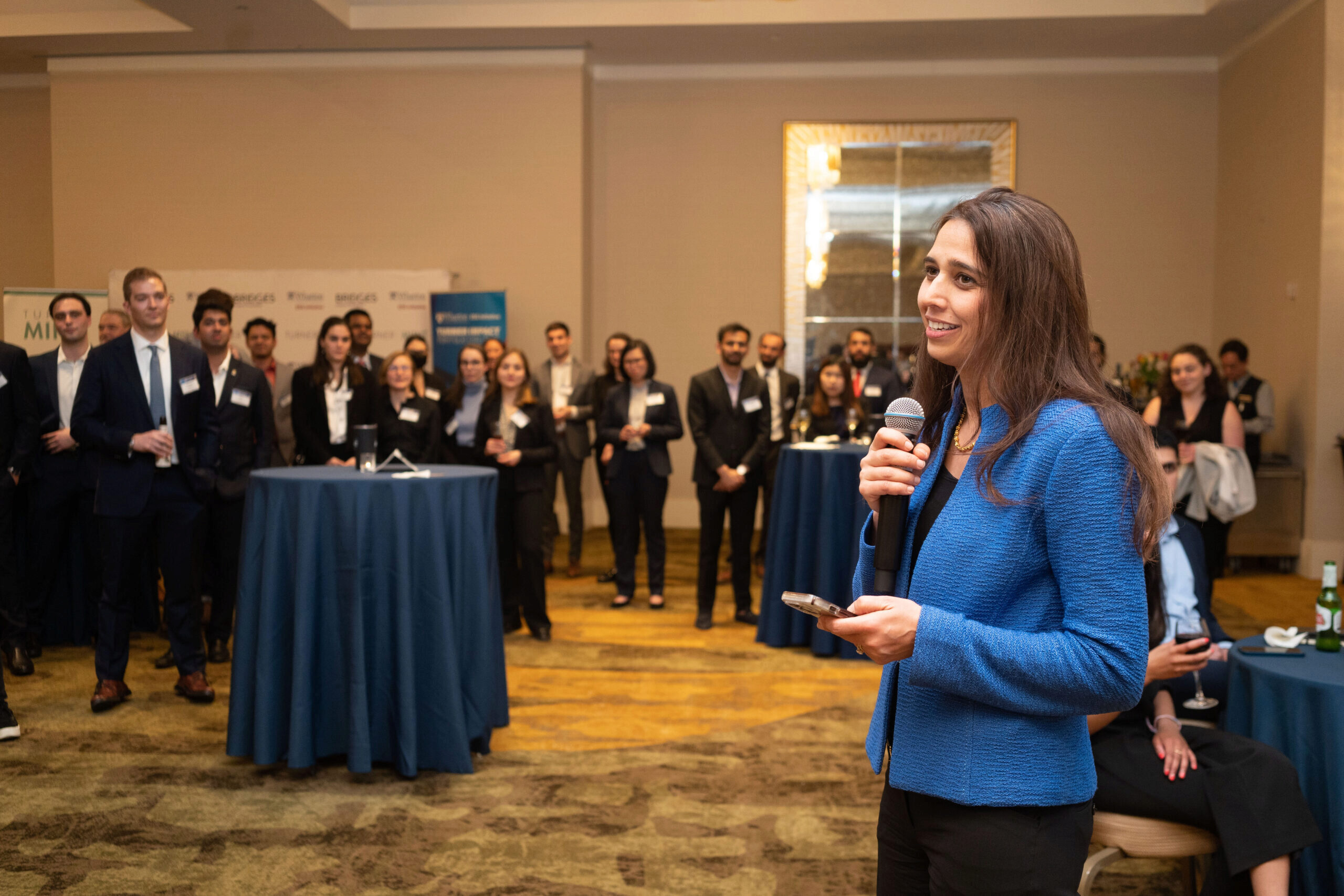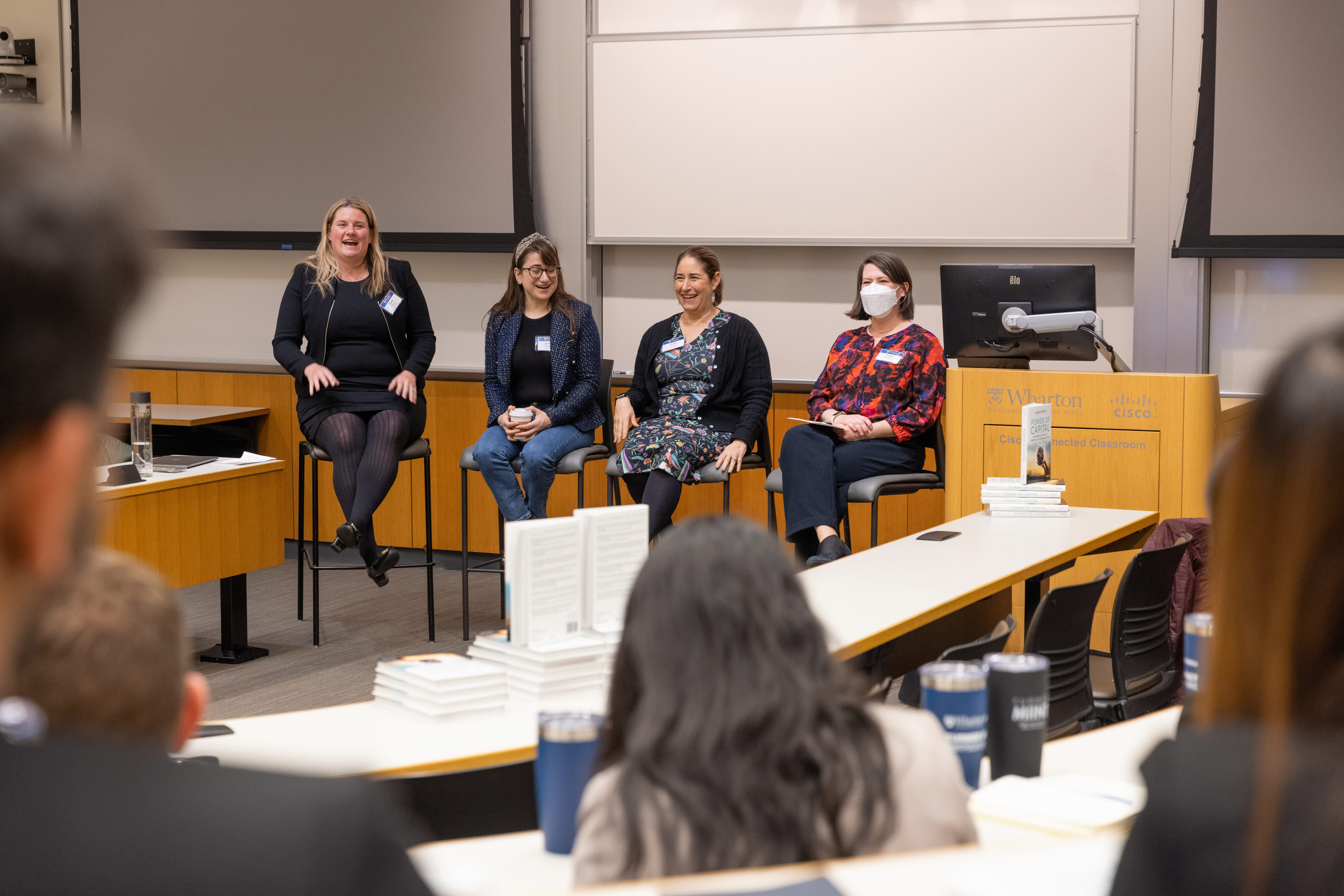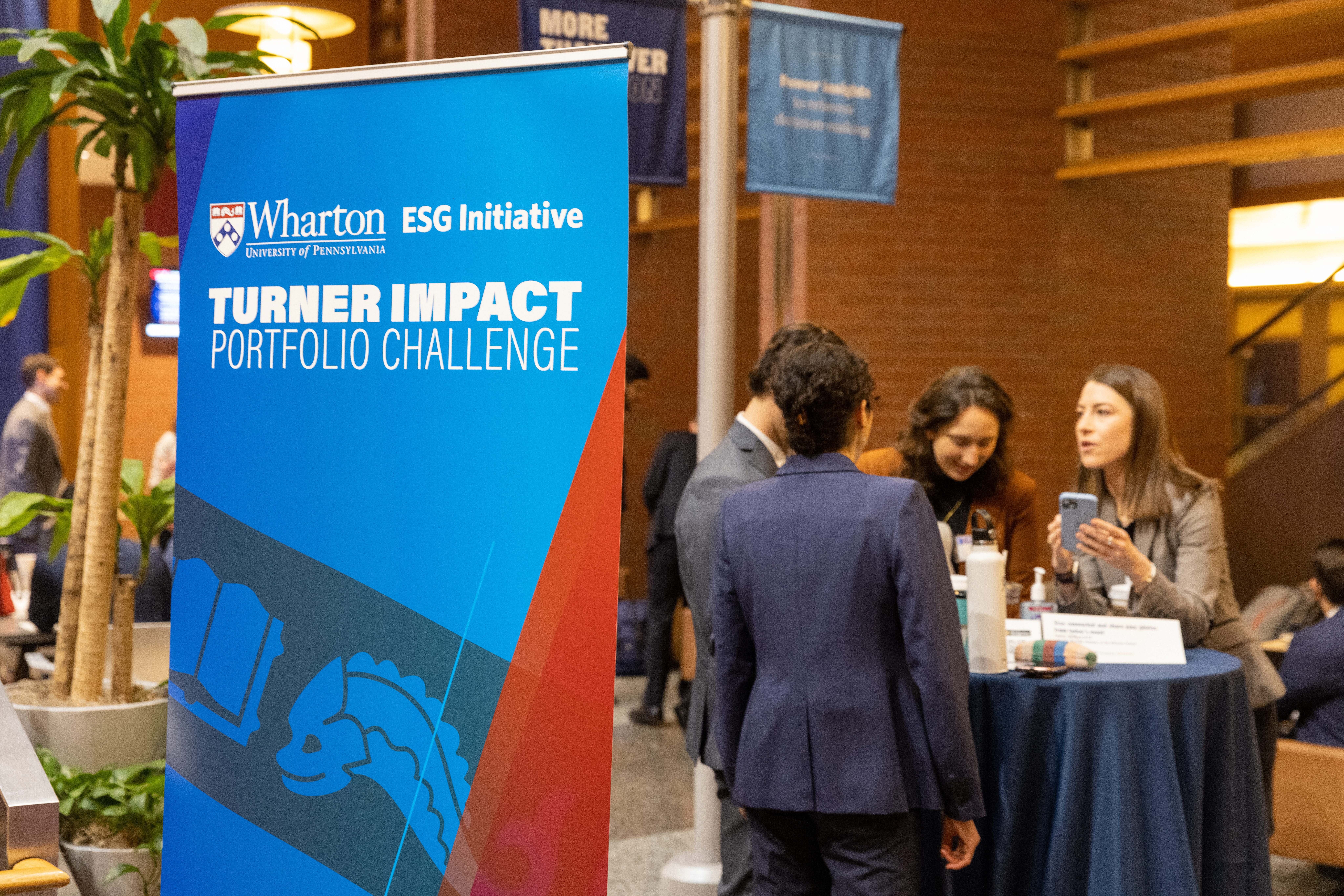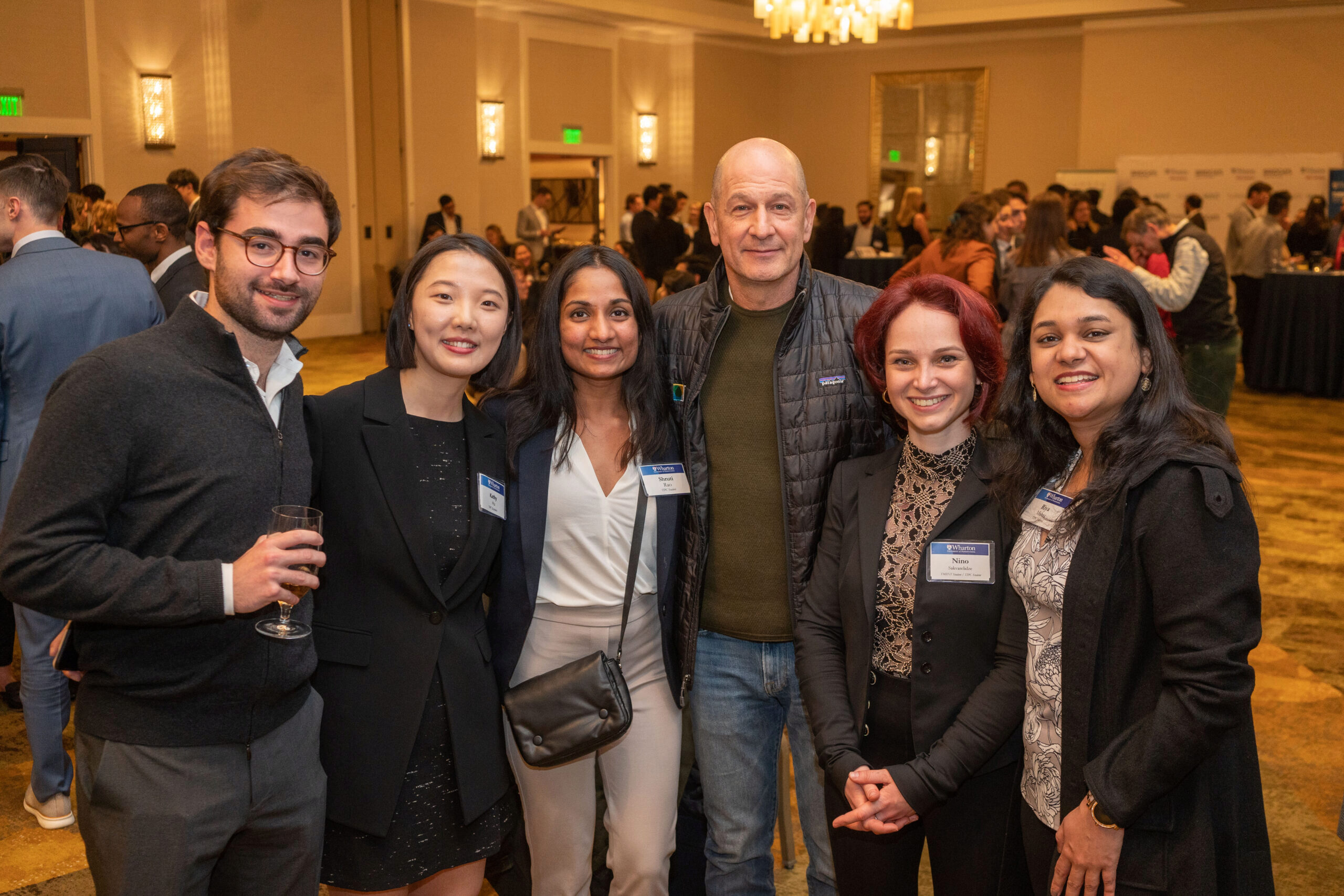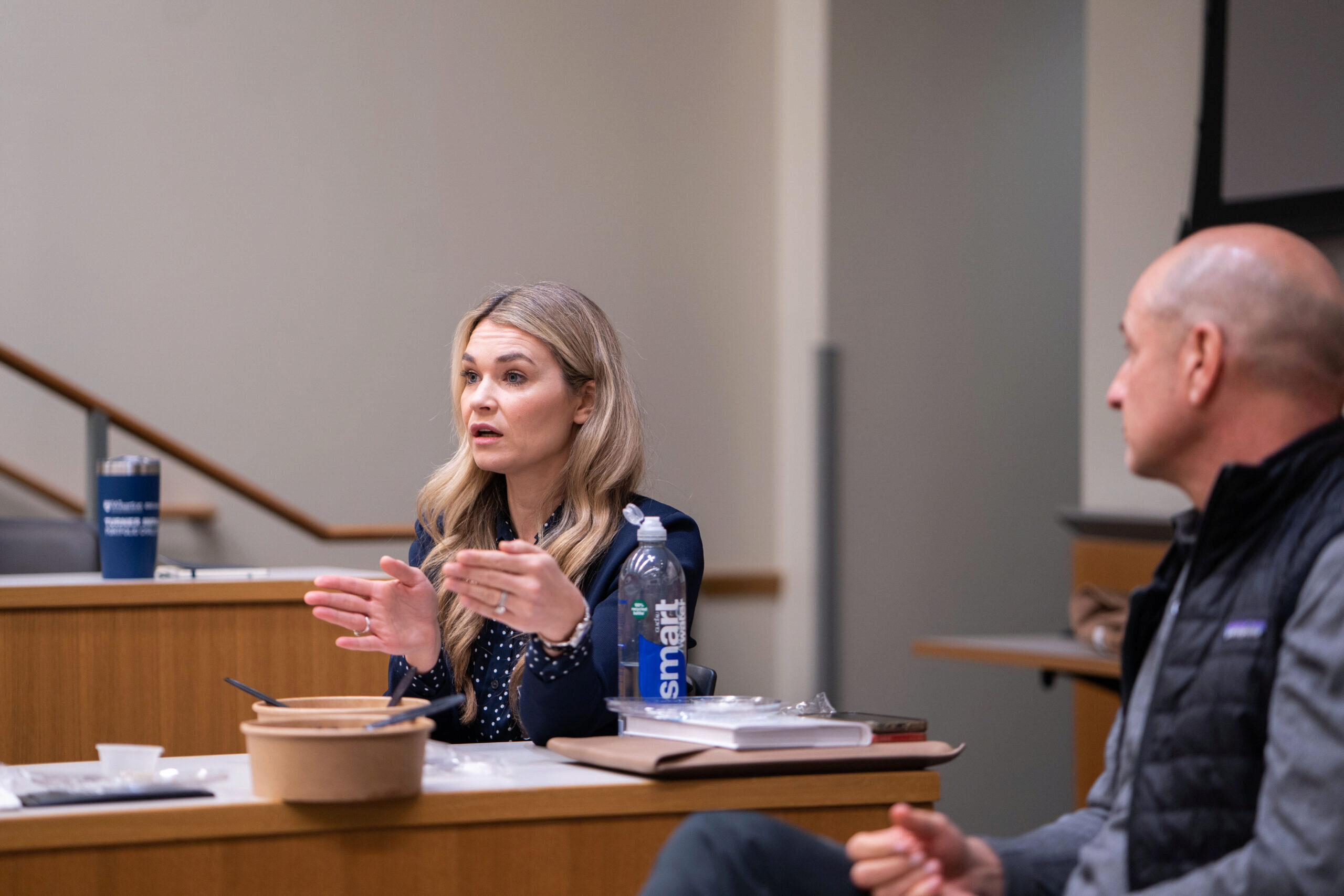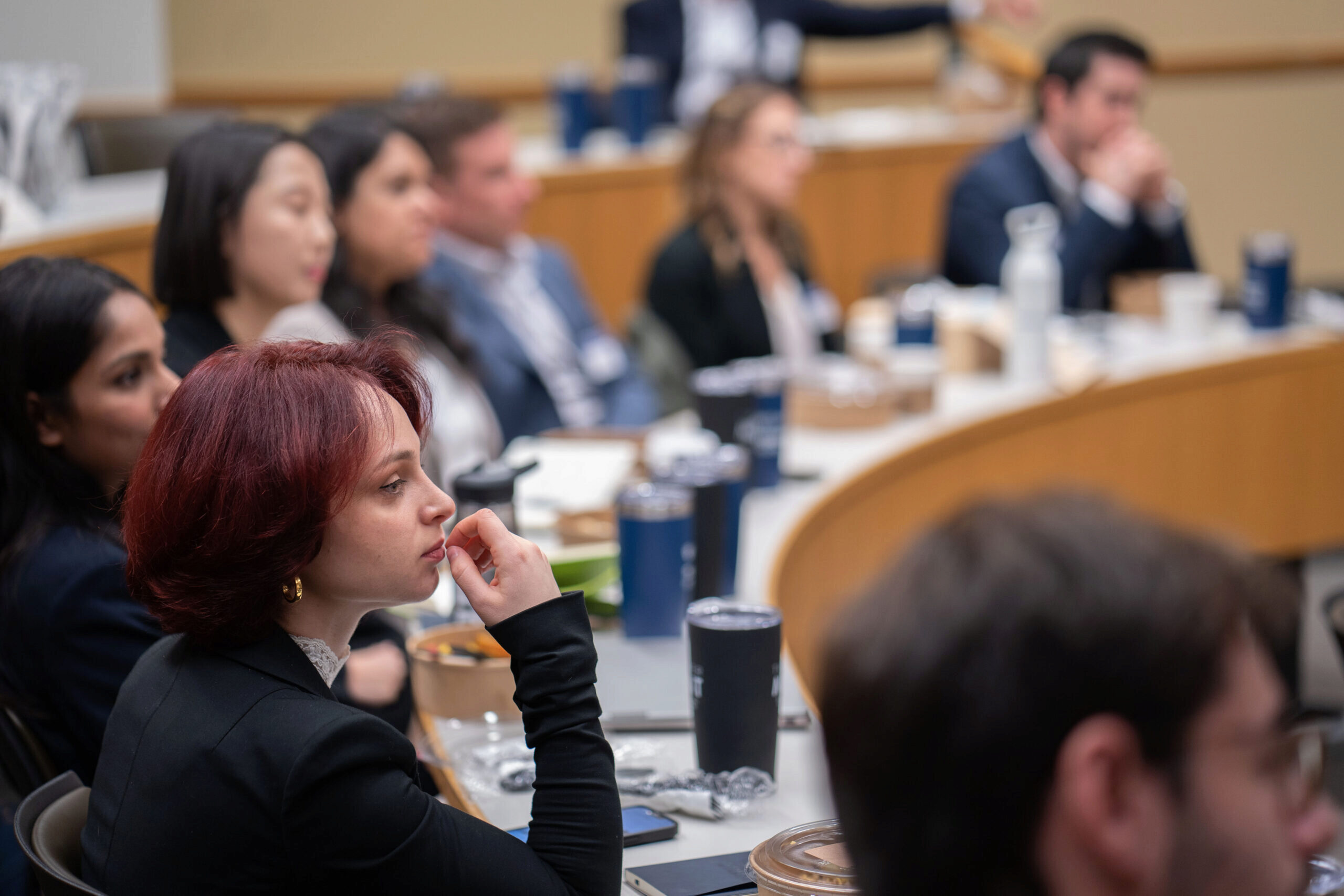Leading the Way in ESG Investing: 2023 Turner Impact Portfolio Challenge
The Turner Impact Portfolio Challenge (TIPC) gives students skills and experience in desiging investment portfolios that maximize impact. A team from The Fletcher School, Tufts University won the 2023 competition.
While there is a great deal of interest around sustainable and impact investing in the venture capital space, it is not the only asset class where impact innovation is happening. Increasingly, institutional investors are seeking to maximize impact across asset classes: venture capital, public equities, fixed income, alternatives, and more. Enter the Turner Impact Portfolio Challenge (TIPC).
Now in its fifth year, TIPC is a year-long, graduate student ESG investing competition produced by the ESG Initiative at the Wharton School and supported by naming sponsor Bobby Turner and founding corporate sponsor Bank of America. This year, 150 students spanning over 35 teams from 15 universities across the U.S. participated in total. These students join hundreds of TIPC alumni across the country who have completed the program.
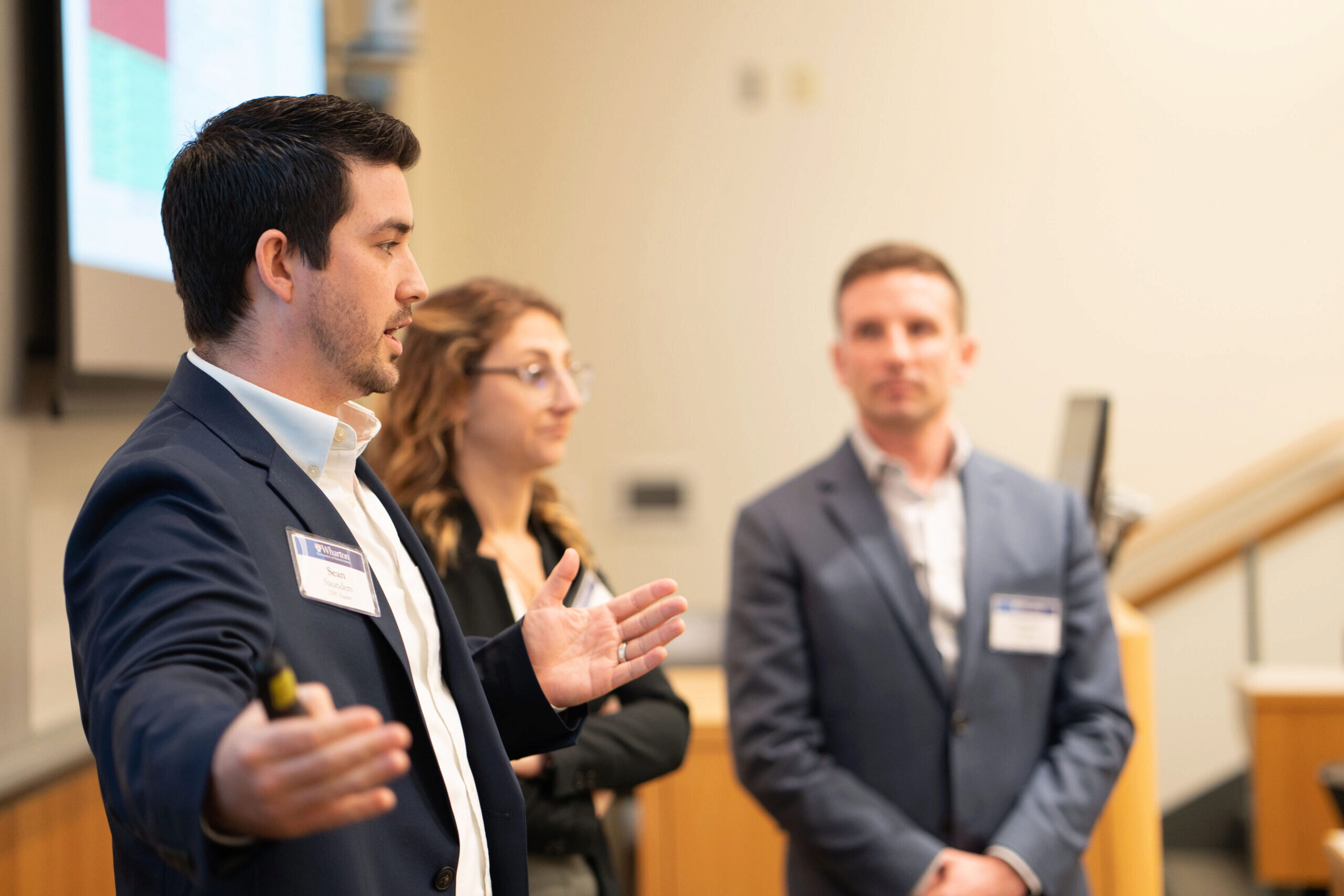
“I have been blown away by the students that go through this program.”
– Sarah Norman, head of the Chief Investment Office’s ESG Thought Leadership team at Bank of America
“I have been blown away by the students that go through this program,” shared Sarah Norman, head of the Chief Investment Office’s ESG Thought Leadership team at Bank of America. “Students partake in a real life scenario, building a portfolio from the ground up. It’s not just about ‘How can I have an active role in finance, strategy, or leadership?’ It’s also, ‘How can I shape the future? How can I have a tangible impact on an outcome that will really change people’s lives or the environment around us?”
How It Works
Each year the program invites student teams to put theory into practice to incorporate ESG factors in portfolio construction. Students were tasked with incorporating environmental and social factors into assessments of climate risk and climate risk mitigation with an aim to not unduly burden populations disproportionately impacted by the climate crisis.
The student teams spent the academic year identifying specific securities, funds, and investments to include in their client’s portfolio. In addition, they were charged with demonstrating how the portfolio meets the endowment’s impact goals, financial return goals, target asset allocation, and risk tolerance.
“Many business school students will go on to work in portfolio management,” said Bobby Turner, W’84, sponsor of TIPC. “Their ability to understand impact and ESG factors in their investment analysis makes them desirable hires for businesses where these factors are of growing importance.”
Not all asset classes offer easy-to-find, investable opportunities. Participating students were encouraged to leverage their unique fields of expertise and be creative in their approach and analysis of impact. To aid in this process, industry experts met with the students throughout the portfolio construction phase to guide them through the cutting-edge investment tools at their disposal and how to identify investment opportunities.
Nick Ashburn, Managing Director and Head of Responsible Investing, PNC Asset Management and Sandi Maro Hunt, Managing Director, ESG Initiative at the Wharton School hosted an energizing webinar where they discussed common critiques of ESG, and how to use ESG as additional information to analyze investments. Students heard from Katerina Gradovich, Vice President, ESG Due Diligence Analyst Bank of America, about selecting and monitoring managers that integrate sustainability.
ESG Book, Net Impact, Toniic, Arabesque, Commonfund Institute, and Align Impact served as content contributors and supported students with networking, investment tools and case studies.
For the first time since 2019, after several years of virtual finals due to the pandemic, finalists traveled to the University of Pennsylvania to present their pitch at the annual final competition. The immersive experience gave students the opportunity to network with fellow graduate students and judges, observe each other’s presentations, and attend a careers panel featuring leaders in the field.
Guidance from Bank of America
Throughout the year, volunteers from Bank of America — wealth advisors, analysts, portfolio managers, and sustainability experts — served as coaches to TIPC teams. They provided guidance to students as they worked through the program, sharing their expertise on topics including asset allocation, portfolio construction, due diligence, manager selection, and more.
Mary Stokes, Institutional Market Investment Executive at Institutional Investments at Bank of America, said, “The level and quality of this year’s coach and student participation eclipsed prior years, illustrating the ongoing importance the investment profession places on searching for financial returns that are earned in ways that are both responsible and sustainable. The profession’s focus on sustainable investing is only getting stronger, and here to stay.”
And the Winner is…
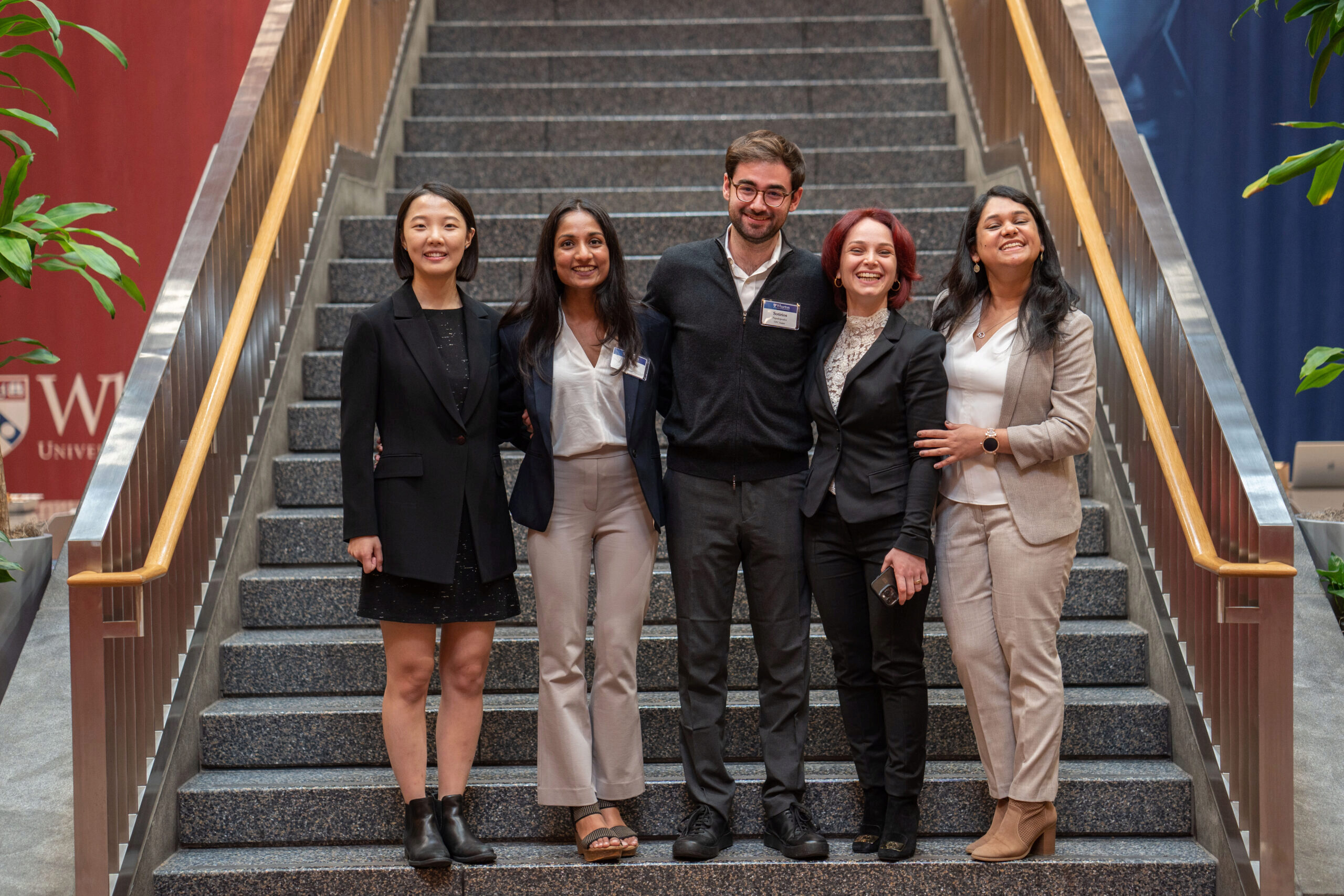
Kathy Hu, Shruti Rao, Riya Mehta, Sotiris Papadopoulos, and Nino Sakvarelidze from The Fletcher School, Tufts University won the competition with a portfolio that aimed to achieve preserve and grow capital while transitioning to net-zero GHG emissions by 2050.
Hu, an International Business Major, shared, “What I enjoyed most was working with my diverse set of team members. We all come from different fields of expertise and backgrounds, and I believe it is our collaboration that made this happen. Through this process, we were really able to learn from each other. This epitomized the larger world where people need to collaborate to create real momentum.”
“It’s a rewarding experience for students to showcase the knowledge they’ve gained and continue their learning ‘on the spot’ by interacting with judges who bring decades of experience in the field.”
– Yuri Seung, Program Manager at the ESG Initiative at the Wharton School
Yuri Seung, Program Manager at the ESG Initiative at the Wharton School shared, “After spending the academic year on this competition, it was a delight to have our students present their portfolios in-person to our judges. Each team did a terrific job, and the winning team really impressed the judges with not only their approach, but their presentation and ability to defend to methodology. It’s a rewarding experience for students to showcase the knowledge they’ve gained and continue their learning ‘on the spot’ by interacting with judges who bring decades of experience in the field. We look forward to continuing this program, and providing students these kind of real-world opportunities that will stay with them as they enter the industry after graduating.”
Runner-Up
Molly Arenson, Cameron Eibl, and Sean Saunders from the Anderson School of Management, University of California were the runner-up team. Molly Arenson shared that, “While I’ve taken courses on ESG, they’ve all been more theoretical and conceptual. This was an opportunity to really put it into practice.”
When asked who she’d recommend this program to, she laughed and answered, “Everyone.” She continued, “For anyone who’s interested even remotely in asset management in general, or even if you’re interested in sustainability or impact, but not necessarily in the investment space. It’s an opportunity to learn a different vertical within ESG and sustainability.”
Judges
Judges for the 2023 competition included Mary Stokes (Institutional Market Investment Executive, Institutional Investments at Bank of America), Asha Mehta (Managing Partner & Chief Investment Officer at Global Delta Capital), Sarah Bratton Hughes (Head of Sustainable Investing at American Century Investments), and Paula Luff (Director of ESG Research and Engagement at DSC Meridian Capital).
Following each presentation, the judges engaged with the student team for a detailed question and answer session, simulating the experience of a presentation with feedback from clients. The students appreciated the judges’ comments that offered valuable insights into how institutional investors think about impact investing portfolios.
Mehta shared, “I’ve been so impressed by the students at this year’s TIPC finals, specifically their excitement for utilizing investment capital to drive ESG objectives and the broad scope of tools they’ve utilized to develop quite sophisticated asset allocation plans that deliver on both returns and ESG.”
The TIPC competition will return next academic year, and all graduate students interested in participating will be able to apply in September.



